onebite knows that in the current business climate, despite steady marketing budgets, many telco companies are facing unprecedented challenges when it comes to resource management.
With reductions in teams, marketing departments are struggling with increasing pressures to deliver exceptional results with limited resources. According to a recent study, 75% of Chief Marketing Officers (CMOs) are experiencing increased pressure to “do more with less” to drive profitable growth in 2023. As a result, 86% of marketers have said they need to implement significant changes in their B2B marketing strategy to achieve sustainable outcomes.
CMOs are also having to juggle the demands for immediate revenue generation and long-term strategic investments – striking the right balance is a difficult task, leaving marketing departments on the hunt for effective solutions to bridge the resource gap and maximise their output.
Hiring and retention remain a challenge, particularly in the wake of recessionary pressures. Candidates continue to demand higher salaries, while the appeal of remote and hybrid roles has never been stronger. Additionally, marketing departments have historically struggled with high turnover rates, adding to the difficulty of maintaining a consistent and skilled marketing team.
In this increasingly pressured environment, a new way of working with telecoms marketing agencies has emerged, helping telco businesses navigate these challenges. Traditionally seen as transient suppliers, telecoms marketing agencies are undergoing a transformation, stepping up to the plate, and enhancing the value they offer to their clients.
This shift has opened the door to a more collaborative relationship between businesses and marketing agencies and offers a potential solution to the resource crunch.
Understanding the Resource Gap
In the wake of recent market turbulence, there is a glimmer of hope as job vacancy numbers are gradually slowing, and candidate supply is showing signs of improvement. However, turnover is still a persistent issue for marketing departments. Despite the end of the “great resignation”, tenure in marketing roles remains worryingly low, contributing to ongoing resource challenges.
Data from the UK Office for National Statistics (ONS) reveal that job vacancy numbers fell for the 11th consecutive period from March to May 2023, with a significant 7% drop from December 2022 to February 2023. This decline in vacancies was seen across 13 out of 18 industry sectors, highlighting the ongoing difficulty in filling essential marketing positions.
Even as the “great resignation” subsides, marketing has always been notorious for its high turnover rates. CMOs at the top 100 advertisers in the US, for instance, have an average tenure of just 39 months, equivalent to a mere 3.3 years. According to a recent study conducted by Remote, employee turnover rates are projected to reach an average of 41.4 percent in 2023. The US is experiencing turnover rates as high as 46.8 percent, while the UK is hitting a turnover rate of 35.6 percent. This constant turnover of talent presents a significant challenge for marketing departments looking for stability and long-term growth.
The pressure of salary increases and expectations adds another layer of difficulty to the resource gap – 68% of digital marketing professional salaries have risen by up to 30% in the last year. Data from the US Bureau of Economic Analysis (BEA) shows that wages in the United States increased by 5.74 percent in May 2023 compared to the same month the previous year. Similarly, the ONS reports a growth of 6.5% in employees’ average total pay (including bonuses) and 7.2% in regular pay (excluding bonuses) from February to April 2023. These wage hikes add a further strain to marketing departments.
The result of all of this? Marketing departments are finding themselves under mounting pressure to deliver outstanding results while dealing with staffing gaps and high churn rates. The issue isn’t budgetary, however – despite budgets remaining relatively stable or even growing, the real constraint lies in time and the ability to retain skilled talent.
Filling the Resource Gap Sustainably
Despite hiring freezes and challenges in candidate supply, marketing leaders have several avenues they can explore to bridge the resource gap in both the short term and long term, ensuring sustainable growth for their departments.
The Role of AI
The use of Artificial Intelligence (AI) to enhance efficiency and productivity is becoming a more commonplace strategy for many marketing departments. A significant number of organisations, 63% to be precise, have already incorporated AI into their marketing processes. Additionally, 68% of marketers have established a fully defined AI strategy, which is up from 60% in 2021 and 57% in 2020.
AI has so many different use cases for marketing departments – from automating customer interactions and data integration to personalising customer journeys across multiple channels. Also, AI can streamline processes such as reporting, enabling real-time insights and predictions for customer and prospect behaviours. The advantages of AI are promising, and many marketing departments are keen to explore its potential further.
However, it’s essential to acknowledge that AI is not a solution for all marketing challenges. While AI has clear and valuable use cases, it cannot entirely replace human creativity and analysis at this stage. Main issues still include:
The quality of outputs; particularly when attempting to fully automate content creation. Relying solely on AI for this task can lead to extremely poor results and impact brand perception.
AI’s extensive use of data raises privacy and copyright concerns, requiring careful management and transparency to protect customer information.
Algorithmic bias; AI can inadvertently perpetuate biases present in its training data, leading to skewed results. Likewise, generative AI may produce flawed or fabricated outcomes, adding further complexity to its implementation in marketing processes.
The Role of Agencies
As mentioned earlier in this post, marketing agencies are increasingly being seen as a viable solution to the resource gap, offering benefits such as reduced time to hire, increased flexibility, and access to a diverse range of specialised skills.
Collaborating with a specialist telecoms marketing agency, such as onebite, can help marketing departments to stay agile, meet fluctuating demands, and maintain a high level of productivity. However, this strategy should also be approached cautiously. While agencies can provide essential support and expertise, businesses must carefully consider their specific needs and objectives to ensure a successful partnership. It is essential to establish clear communication channels, align expectations, and build a transparent working relationship with agencies to maximise the value they bring to the table.
Supporting the Wider Business
The role of marketing agencies has undergone a profound shift in recent years – transitioning from being temporary suppliers to becoming strategic, long-term business partners. Agencies must go beyond the traditional transactional relationship and embrace a more holistic approach to be considered a partner, but what does this actually entail?
An agency partner is so much more than just an external service provider; they play a pivotal role in driving results for their client by:
Moving from short-term engagements and establishing long-term, strategic alliances with the wider business.
Understanding the company’s unique challenges and long-term objectives at a business level.
Participating in shaping and executing broader business and marketing strategies; not just focusing on individual projects or campaigns. The agency’s role is no longer limited to completing one-off tasks but becomes integral to the overall success and expansion of the business.
Focusing on mutual growth and success – the agency’s objectives align with the client’s objectives, and they work together collaboratively to achieve tangible outcomes.
A telecoms marketing agency, such as onebite, can support the wider business in two ways:
Supporting Senior Marketing Leaders
A reliable agency should provide valuable strategic insights and offer fresh perspectives to senior marketing leaders. By acting as a trusted advisor, the agency supports decision-making processes and contributes to the formulation of effective strategies. They engage in idea-sharing and discussions with the wider business, bringing in diverse expertise and experiences to enhance the company’s approach to marketing. Additionally, agencies aim to make marketing leaders look good by supporting them in complex tasks, freeing up their time to focus on strategic execution and high-impact initiatives.
Supporting the Entire Marketing Team
Resource pressures in marketing departments lead to rising levels of stress, burnout, and overwork. These challenges can significantly impact productivity, morale, creativity, and overall job satisfaction. An agency can step-in to alleviate the workload burden on internal teams. They offer expertise in specific areas, such as B2B demand generation, helping to fill skill gaps and provide additional support when needed.
What Should You Expect from Your Agency?
Before considering whether to partner with a marketing agency, it’s important to qualify the agency’s abilities, experience, and the value they will bring to the business, especially when faced with time and resource constraints.
Here are 6 key qualities a business should look for in their agency partner, and the questions you should be asking to ensure a productive collaboration:
Strategic Involvement
A reliable agency should be actively involved in the strategic decision-making process, offering valuable industry insights and tailored recommendations aligned with the client’s specific goals and challenges. They should demonstrate a solid track record of guiding clients on making good use of emerging digital trends and innovative approaches to stay competitive.
Ask about the agency’s strategic experience and how they aim to add value beyond tactical delivery. Understanding the expertise of the people working on the account is crucial too – will you be supported by a balanced team with a mix of junior and senior professionals?
Transparent Communication
Regular, detailed updates on project status and proactive communication about potential issues are fundamental to a successful agency-client partnership. The agency’s success metrics should be aligned with those of the client.
What are the agency’s reporting processes and what does success look like? How do they set up tests and learn from campaigns, enabling quick and informed budget decisions?
Knowledge Sharing
A true partner will regularly upskill the client’s internal team by sharing industry trends, best practices, and insights. Workshops, webinars, and shared reports are all valuable tools for educating the client’s team in their day-to-day roles.
Ask about the agency’s approach to knowledge sharing. How do they ensure that the agency’s deep knowledge of the client’s business is shared among multiple team members to mitigate the risks of knowledge silos?
Proactivity and Innovation
A proactive agency, like onebite, brings fresh perspectives and creative thinking to the table, drawing from their diverse client experience across various industries. Agencies should be forthcoming in proposing new strategies, channels, or campaigns to drive business growth, displaying a thorough understanding of the client’s market and a keen awareness of current trends.
Ask about the agency’s process for incorporating wider market analysis into their work, and request examples of strategic recommendations or initiatives they have led for other clients.
Scalability and Agility
An agile agency can seamlessly scale its resources to match the client’s changing needs, making it an ideal solution for businesses facing fluctuations in demand due to seasonality or unforeseen events.
Ask about the agency’s process for onboarding new team members or reallocating resources in response to changing needs and establish a timeframe for scaling up or down services.
Specialist Skill Sets
Agencies, thanks to their diverse clientele, have experience across a wide range of industries and numerous B2B marketing strategies. This expertise may not be practical for businesses to maintain in-house.
What is the agency’s approach to their team’s learning and development? What are their staff retention strategies – how do they attract and retain high quality staff? How do they plan to apply their specialist knowledge to your specific business and industry?
By setting clear expectations and thoroughly qualifying the agency’s experience and ability to deliver value, businesses can form a strong, long-term partnership with an agency – effectively addressing time and resource constraints while also achieving notable growth and success.
A Sustainable and Long-term Resolution
Despite stable (or even growing budgets in some cases), the pressure to deliver with fewer resources has never been more intense for marketing departments. Combined with hiring and retention hurdles, there’s a critical need for external support to bridge the widening resource gap.
While AI is a promising part of the solution, its limitations require careful consideration.
A more sustainable and long-term resolution is forming a strategic partnership with a trusted marketing agency. Providing the relationship is built on clear communication, shared objectives, and mutual trust, this solution offers an assuring route to overcoming resource constraints. A well-aligned agency can become an extension of a marketing team, contributing specialist skills, strategic insights, and a fresh perspective. By utilising an agency’s expertise, businesses can confidently navigate unique challenges and seize opportunities for growth.
It’s important to remember that a good agency partner should go beyond providing traditional marketing services. They should be able to proactively adapt, remain flexible, and embrace your success as their own.
If you’re looking for comprehensive support over the next 6-12 months, onebite’s team of marketing experts would love to hear from you!
As a telecoms marketing agency and specialist in B2B demand generation, onebite has been supporting telco brands such as Vodafone and Adam Phones for many, many years.
If you’d like to discuss how onebite can help fill your resource gap, get in touch with the team to arrange a time for an informal chat.




